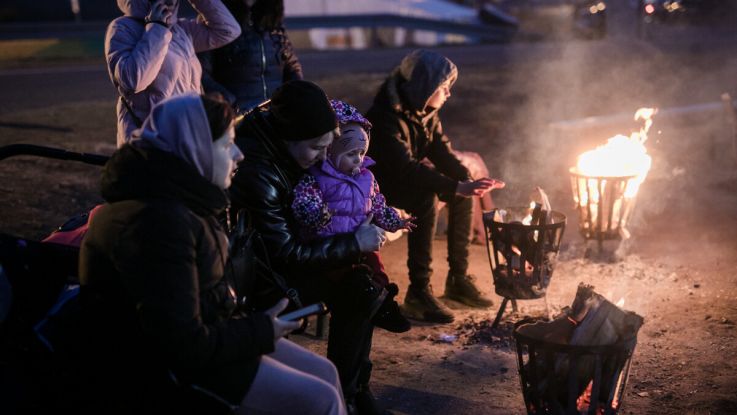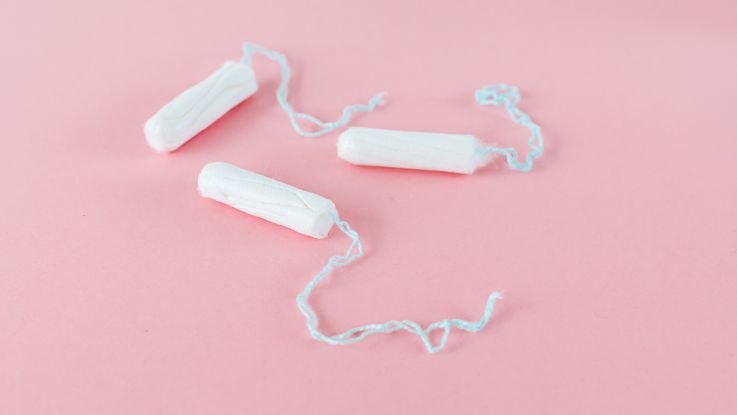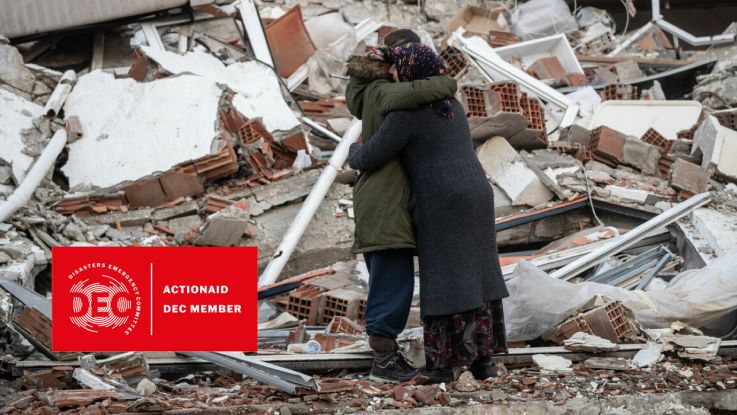Menstrual care is a right, not a privilege. Period.
24 May 2019
Menstrual care isn’t a luxury - for most women, it’s something we simply can’t live without. Despite this, statistics show that millions of us are affected by period poverty. Here's why menstrual care is a right, not a privilege.
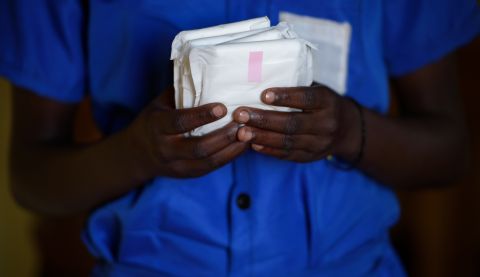
Jeanne Iraguha, 14, shows the sanitary pads that are provided in the safe room at Kibaga Primary School in Nyanza, Rwanda. Photo: Jennifer Huxta/Actionaid
For many of us, tampons, pads or menstrual cups are simply a part of life - a monthly necessity we couldn’t do without, but we don’t much think about. We certainly don’t regard them as a luxury, or something we’ve ever really looked forward to buying. They’re ordinary, not opulent. Tedious, not a treat.
But around the world, in the UK and abroad, period poverty means that millions of women and girls go without the essential items that let them manage their periods safely, and with dignity.
The repercussions of period poverty are far-reaching. For many women and girls, a lack of menstrual care means missing days of school or work, putting their education or career at risk.
But for some girls, the sweeping impact of period poverty is just as great, but less conspicuous. Because missing days of school doesn’t only damage their education - it can have long-term consequences including child marriage, early pregnancy and a greater risk of sexual violence.
That’s why this Menstrual Hygiene Day, we’re standing with women and girls to make period poverty a thing of the past.
Why does period poverty happen?
Period poverty is global issue affecting those who can’t access safe, hygienic sanitary products, or private toilet spaces where they can be used. It also affects those who are unable to manage their periods with dignity - sometimes due to stigma or a culture of shaming in their community.
And it’s not only about being unable to afford tampons or pads. In some cases, women and girls just don’t have access to the tampons or pads they need, because they're not readily available in shops in their community (maybe due to cultural stigma, or even just the practicalities of manufacturing and shipping).
They might also have limited access, leading to prolonged use of the same tampons or pads, which can cause serious infection.
For some, the cost of tampons or pads in relation to wages is simply prohibitive. In Malawi, for example, a pack of pads can cost more than a whole day’s pay.1 Most women and girls need two packs per period, which means spending two days’ pay every month on pads alone.
Meanwhile in Kenya, a pack of eight pads costs about one US dollar, but half of the population lives on less than a dollar a day.2
The result is that some women will have to make the impossible choice of buying food or sanitary protection.
In desperation, they may be forced to improvise using torn clothing and other rags, which can be uncomfortable, unhygienic and ineffective. Risks may be greater if the women or girl has undergone female genital mutilation (FGM).3
The reality is that this problem is exacerbated because, around the world, women and girls have less social, economic and political power. Globally, women are paid on average 24% less than men.4
With less money, less visibility and less political power to change the way things are, women and girls can be locked in period poverty for all of the years they menstruate: most of their lives.
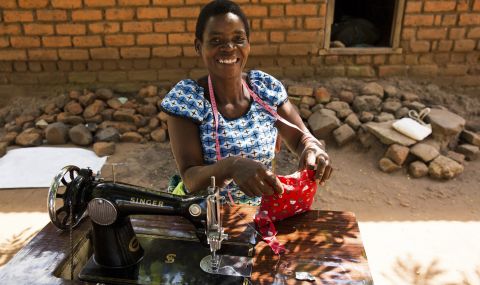
Ruth, from Malawi, took part in an ActionAid project training women to make reusable sanitary pads. Photo: Samantha Reinders/ActionAid
Why is menstrual care so essential?
Menstrual care is essential because it allows those who menstruate to live their lives on an equal footing with those who don’t. It allows women and girls to navigate school, home and work without being held back on a monthly basis, fearful of stains, leaks or infections.
Menstrual care can also be the major difference that ensures a girl can create the future she wants.
When girls have no (or limited) access to menstrual care products, and/or safe, private toilets for them to use at school, they are far likelier to miss days of school, fall behind in the studies and even drop out of school altogether.
And when girls aren’t in school, the trajectory of their life can be changed altogether.
Being out of school can put girls at greater risk of sexual exploitation, violence and abuse.5 They are more likely to get pregnant at a young age, which increases the risk of complications giving birth.6 They are more likely to be subjected to child marriage.7 And, without the knowledge or power to make decisions about safe sex, they’re at a higher risk of contracting sexually transmitted infections.
Ultimately, when girls’ education is cut short, they lose the chance to learn the knowledge and skills they need to secure a good job and provide for themselves and their families. They also lose the opportunity to be empowered and develop social networks and confidence that will help them stand up for their own interests.
When girls stay in school, we know that everything in their life can change.
So, the truth is, menstrual care isn’t just avoiding leaks and stains (although that, in itself, is far from trivial). Menstrual care is a fundamental issue of gender equality.
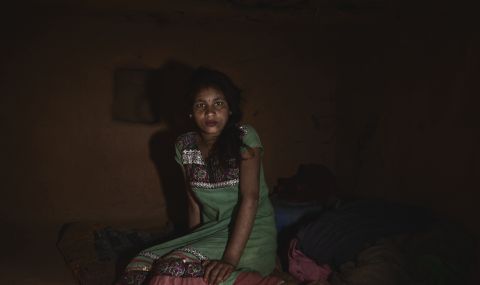
Ishu, 14, is banished to a hut every month when she has her period, due to an ancient tradition in Nepal. Photo: Poulomi Basu/ActionAid
How to end period poverty
This Menstrual Hygiene Day, join our movement to put period poverty in the past. Because no girl, anywhere, should be held back because of her period.
By donating just £3 a month, you could help fund our work helping women and girls to access menstrual care all over the world, which includes:
- Teaching girls about periods, sanitation and menstrual care at school
- Providing dignity kits for women and girls living through conflict, disasters and emergencies. These contain clean underwear, soap and sanitary pads
- Training women and girls to make safe, reusable sanitary pads - so they always have access to clean and affordable sanitary products
- Working with local communities to end the practice of a period-shaming and stigma, for good.
Footnotes
- 1https://www.bbc.co.uk/news/magazine-36398973
- 2https://www.npr.org/sections/goatsandsoda/2016/05/10/476741805/what-kenya-can-teach-the-u-s-about-menstrual-pads?t=1555514174114
- 3https://unesdoc.unesco.org/ark:/48223/pf0000226792
- 4https://www.actionaid.org.uk/sites/default/files/publications/actionaid_double_jeopardy_decent_work_violence_against_women_6.pdf P.9
- 5https://insights.careinternational.org.uk/media/k2/attachments/CARE_Child-marriage-in-emergencies_2015.pdf
- 6https://www.who.int/en/news-room/fact-sheets/detail/adolescent-pregnancy
- 7https://www.unicef.org/media/files/UNICEF-Child-Marriage-Brochure-low-Single(1).pdf


